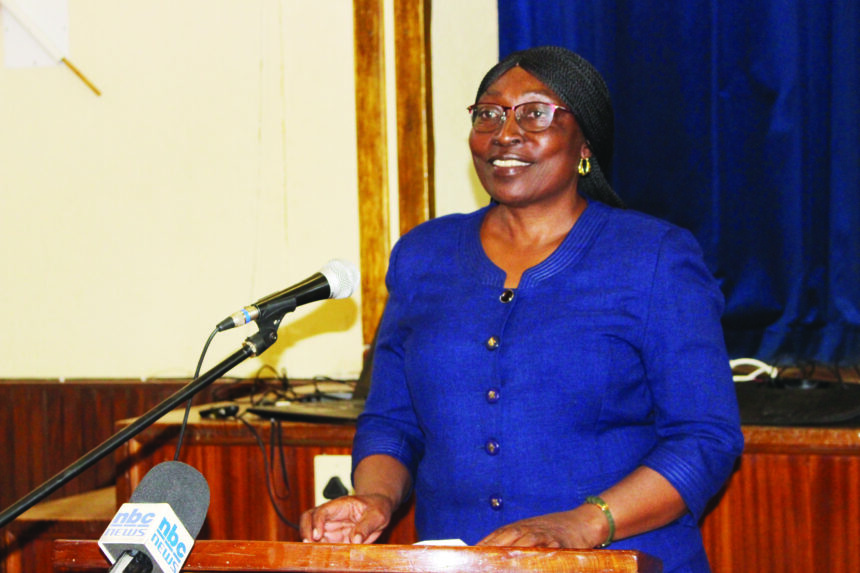MARIENTAL – Deputy education minister Faustina Caley engaged principals and regional councillors at Mariental in the Hardap region.
The engagement aimed to discuss the performance of schools and challenges across all three education circuits – Nauklift, Auob and #Oan//ob.
Accompanied by Hardap governor Salomon April and member of Parliament Harald Kambrude, her visit covered a detailed analysis of student performance for May and June this year. Discussions focused on strategies to enhance overall student performance, and address key educational challenges.
In her remarks, she said the newly approved National Conference on Education Implementation Plan (NCE-IP), a comprehensive seven-year strategy, is aimed at addressing critical areas within the education sector. “The NCE-IP is our blueprint for educational reform. It focuses on 10 key areas, including improving access to quality education, accelerating infrastructure development and expanding digital learning,” she said.
Caley also talked about the timely provision of educational resources, stressing the importance of adequate allocations for school stationery, and funding for textbooks and practical subject materials. “We need to avoid misuse of these funds, as it directly impacts our students’ preparation for exams,” she cautioned.
She said the ministry is procuring interactive smart screens and computer laboratories to enhance digital learning, a step towards integrating technology into the classrooms.
She emphasised the need for strong school management and a defined school culture, noting that effective leadership and a clear school identity are crucial for improving educational outcomes.
“Let’s work together to build a vibrant education system that serves every Namibian child,” she said.
She then urged educators to collaborate and drive the necessary changes to achieve a robust and inclusive education system in Namibia. -Nampa



